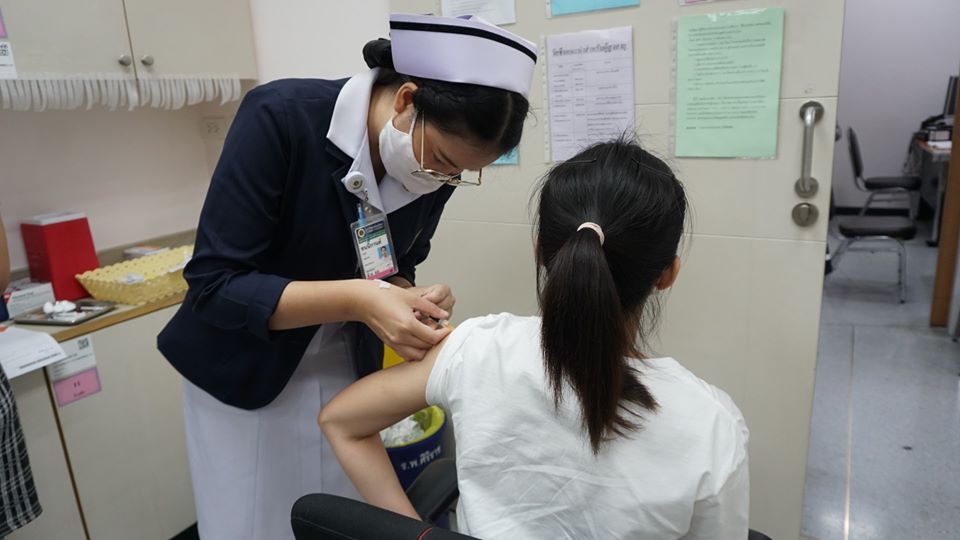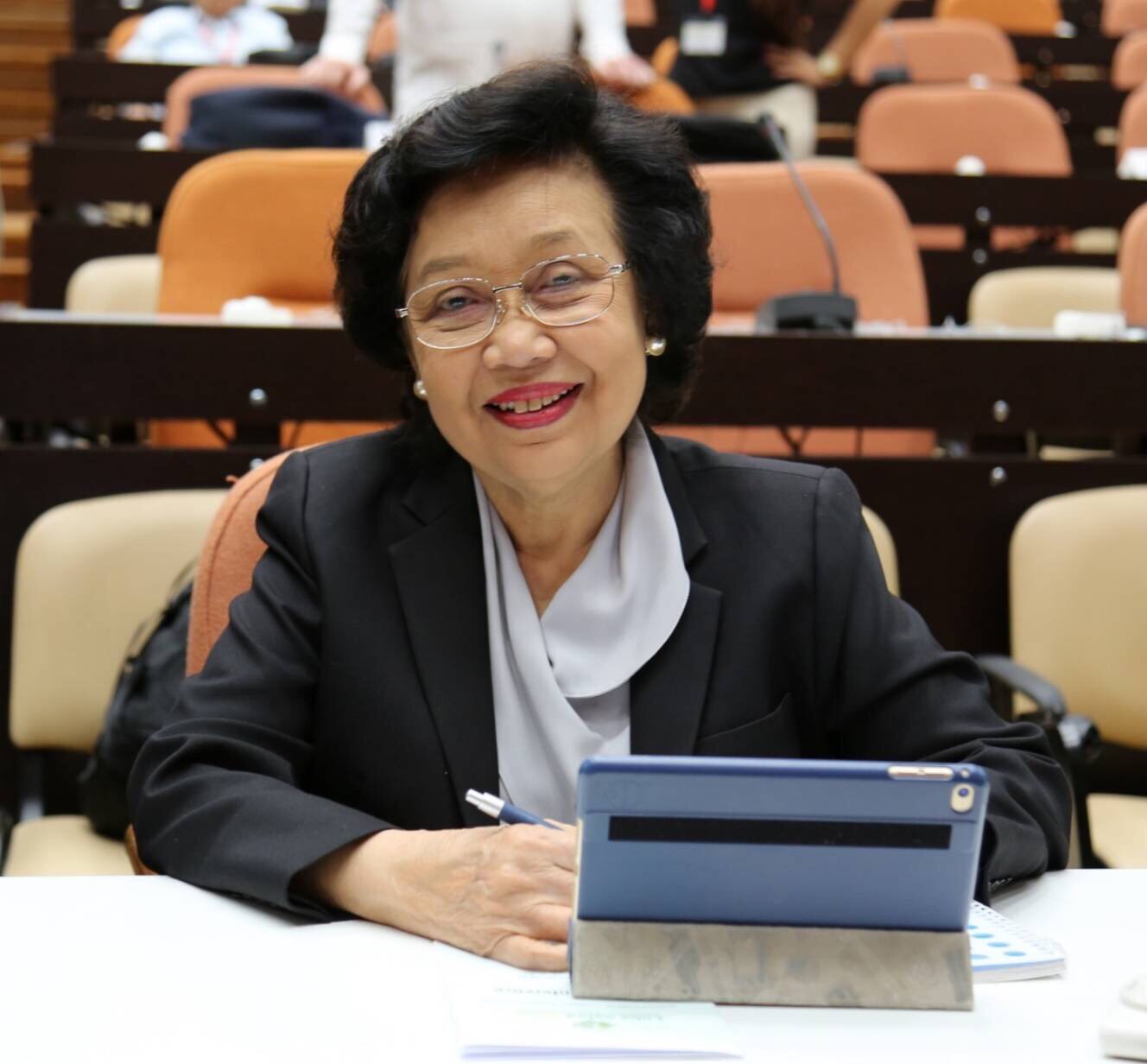
- Home
- DescriptionNews
More groups included into annual flu jabbing programme, as inoculation extended until the year end

More groups included into annual flu jabbing programme, as inoculation extended until the year end
Every year certain groups of people seen at risk of contracting influenza are encouraged to get vaccinated against the flu ahead of the flu season, some time between the rainy season and the cold season.
The free flu vaccination programme, run by the National Health Security Office (NHSO), however, has not been very successful this year due partly to the serious COVID-19 outbreak situation.
Only about 28.05% of the target population has so far been injected with the flu vaccine, since the vaccination campaign began on May 1.

A total of 6.2 million doses of the flu vaccine have been set aside for the vaccination programme in the 2021 fiscal year, while only 1.7 million doses (28.05%) had been administered as of Aug 6, said Deputy Prime Minister and Public Health Minister Anutin Charnvirakul.
Considering the flu vaccination situation, the National Health Security Board (NHSB) had therefore on Sept 6 resolved to extend the mass vaccination programme to until the end of the year, said Mr Anutin who is also the chairman of the NHSB.
And as Thailand is dealing with COVID-19, more groups of people at risk of contracting the coronavirus should be included into the flu vaccination programme as well.
The NHSO has previously consulted the Department of Disease Control (DDC) as to which groups should also be included into the flu vaccination programme while it is being extended to the year end.
The DDC has therefore advised including three more groups, namely healthcare workers or other workers handling COVID-19 patients, the people living in or having to get into crowded areas and other at-risk groups of people who may later need the flu shot as well when the situation changes.
These three additional groups of people will begin receiving the flu vaccine from October until the end of December 2021, along with more members of the seven groups encouraged to get vaccinated from May 1 until Aug 31.
- The seven groups are Pregnancies of four months or more, children aged six months to two years, people with seven chronics diseases (chronic obstructive pulmonary disease (COPD), asthma, heart disease, stroke, kidney failure, cancer that requires chemotherapy and diabetes), people aged 65 and over, people with cerebral palsy require full time assistance, thalassemia and immunodeficiency (including HIV Infected and AIDS-defining illness) , and people weighing more than 100 kilogrammes or having body mass index (BMI) 35kg/m2 or higher .

This year’s flu vaccination programme is aimed primarily at both preventing severe illness or deaths from influenza and avoid confusion when it comes to distinguish the flu from COVID-19 in making a diagnosis, said Deputy NHSO Secretary-General Dr Jakkrit Ngowsiri.
The NHSO will next step up public campaigning for these target groups to get the flu shot along with the
COVID-19 vaccine. They may get the flu vaccine before or after the COVID-19 vaccine as long as they allow at least two weeks apart between these two vaccines.
COVID-19 vaccine recipients can also get the flu vaccine between the first and second shots of the COVID-19 vaccine, he said.
Although the free flu vaccine injection service is available at all state-run hospitals and other healthcare facilities taking part in the universal coverage scheme (UCS), booking a vaccination appointment is highly recommended to avoid overcrowding, he said.

Many tended to forget that they still need to get the flu shot as they were focusing more on the COVID-19 vaccination this year, said Assoc Prof Dr Prasopsri Ungthaworn, a member of the National Health Security Board (NHSB).
As a result, this year’s flu vaccination target has not been met just yet, she said.
Now that the COVID-19 vaccination has improved significantly, with about half of the elderly population already getting fully vaccinated, many healthcare providers may now become more ready for the extended period of the flu vaccination programme, she said.
The people who have received all two shots of the COVID-19 vaccine and are eligible to receive the free flu vaccine are therefore encouraged to next get the flu shot, she said.
They include front-line healthcare workers who have been fully vaccinated against COVID-19, the people living in crowded communities, and ones who have to get into crowded places such as students who will be back to school in the coming school term, she said.
“We haven’t provided the flu shot to these additional groups before. But now that the flu and COVID-19 appear to have similar symptoms in the beginning, it will become easier to decide who are likely to have COVID-19 if we can prevent them from contracting the flu,” she said.
The people eligible to receive the free flu vaccine may individually seek the vaccination service at all hospitals and medical clinics under the UCS, while a group vaccination service can also be arranged on request, she said.
A priority is now given to school students because children aged under 12 are now not given the COVID-19 vaccine, while they will have to return to their schools in the coming school term, she said.
At least, these children should get the flu vaccine first so that they won’t be sickened by the flu, she said.

